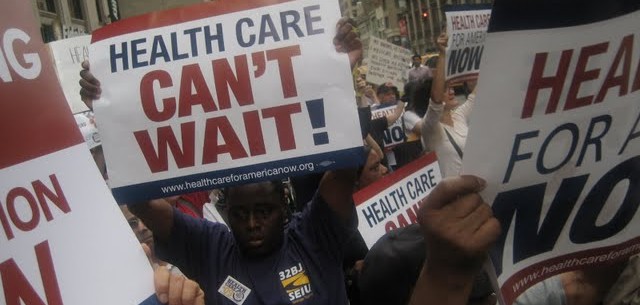It’s now just seven session days to go! That’s it for getting some good health care stuff done before the New York State Legislature adjourns for this year in early June. Here’s another set of bills poised to move ahead to passage:

Improving Hospital and Community Relations
For more than two decades under several governors, scores of hospitals across New York State have been allowed and urged to merge, downsize, or outright close as new large hospital systems have been created as part of regional restructuring to improve financial stability of individual facilities systems as these networks seek to expand market share. As a result, local communities have had their health care system destabilized, and they are left with fewer services or none at all. The current COVID-19 pandemic has revealed the drawbacks of consolidations and closures for all to see. Again, a universal health care program with proper health planning would have prevented various adverse outcomes, and made sure that communities have access to the services they need, particularly during a public health crisis.
Absent that however, there are some steps that New York lawmakers are taking to begin to reassert a proper role for communities in what happens to their hospitals as our health care system consolidates. These bills include:

Local Input for Community Healthcare Act (S.3131A/A.2251A, Kavanaugh/Simon) – As crazy as it seems, under current New York law, when a hospital closes or dramatically downsizes core services, no government approval or advance notice is required, and a public hearing in the affected community is only required within 30 days AFTER it happens! This bill flips the dynamic around so that:
- Closure of facilities or key services must be announced in advance.
- The State Dept. of Health plays an active role in approving, overseeing, and managing a closure.
- The local affected community has meaningful opportunities for input into the process overseen by the State.
This bill also applies to closures of maternity units and emergency departments, as well as a full-out shut down. This bill has already passed through the Assembly, and has passed through all relevant committees in the Senate and is ready for a floor vote.

Improved Transparency of Available Services (S.5400/A.6334, Hinchey/Rozic) – Often when patients are seeking personally-sensitive services from hospital systems such as reproductive health care, end-of-life care, or gender-affirming care, they suddenly discover that it may not be available from their local facility because of non-medical, policy-based exclusions made by the facility’s operators. This bill helps patients navigate such situations by:
- Requiring hospitals to publish what services they choose to exclude.
- Requiring hospitals to comply with existing state and federal law as to what services they provide. in a manner that is non-discriminatory against particular classes of patients.
- Requiring insurers to make such information available about their provider networks prior to someone enrolling in one of their health plans.
- Requiring the State to research and publish a report on the statewide scope of this problem by facility and hospital network.

We urge you to contact your State Legislators to express your opinions about either of the above bills if you support them, since the clock is ticking.
A few years ago, Community Catalyst, a Boston-based health policy organization that works with state-based health advocacy coalitions, helped to form the Community Voices for Health System Accountability project here in New York, in partnership with Health Care for All New York and Medicaid Matters New York. Its purpose is to foster a better, more meaningful role for community residents, leaders, and advocates with regard to their local hospitals and health care facilities, and to strengthen New York’s oversight of these institutions. We have participated in this project since then.
